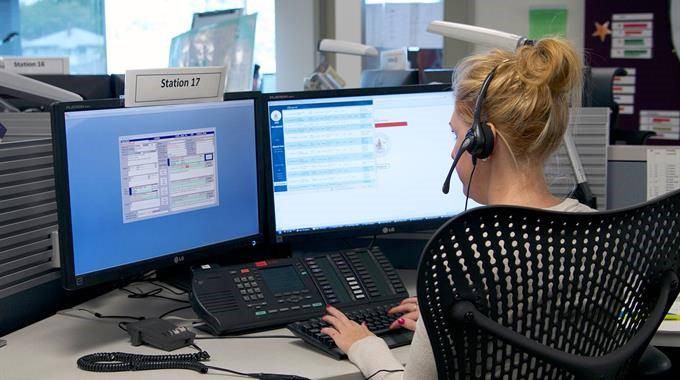BC Emergency Health Services provides the following types of patient transfers:
- Transferring patients to a hospital or other health facility that provides a higher level of care, within B.C.
- Repatriating patients from hospitals within and outside of B.C, back to their home community hospitals
When you are ready to return to your home community, your health care team and BC Emergency Health Services (BCEHS) will determine whether you require paramedic care during transport. If so, BCEHS and your health care team will arrange transport for you via the BC Ambulance Service.
If it is determined you do not require an ambulance, your health care team may arrange an alternate service provider.
If your health care team discharges you from the hospital because you are well enough to home without paramedic care, you are responsible for arranging your own way home.
It may not be possible for family members to travel with you. BCEHS recognizes the vital role a family member plays in the holistic well-being of a patient, but there is limited space and weight capacity in an ambulance.
The decision for a family member to travel with you cannot be made until the paramedics have arrived to pick you up. For this reason, BCEHS highly recommends family members make their own travel arrangements.
If a family member is approved to travel with you, photo identification may be required.
If you are insured under the BC Medical Services Plan (MSP), and are being transferred from one hospital to another hospital:
If you are insured under the BC Medical Services Plan, and are being transferred between a residential care home and a hospital:
- $80 flat fee (air or ground) *
If you do not have a valid BC Care Card (e.g. visitors to BC/non-residents, as well as work-related injuries, claims under RCMP, and other federal agencies) and require paramedic care and transportation by ambulance:
- $848 flat fee (ground service) *
- $4,394 per hour (helicopter) *
- $11 per mile (airplane) *
*These prices are subject to change
For more, please see the
Billing page.
It is possible that another patient will be in the same ambulance as you, if you are being transferred. There is a high demand for ambulances within the province and BCEHS strives to use paramedic resources wisely.
The decision whether you are transported by air or ground ambulance is made with your health care team, in conjunction with BCEHS. The decision is based on many factors including travel distance, your medical needs and resources available.
This decision is made by your health care team, based on your medical needs. Alternate service providers may be used to transport you such as:
- Commercial airlines
- Taxis (wheelchair accessible)
- Family members
- Private medical transportation service providers
- Handy Dart
Inter-facility transfers are handled by two different departments working together within BC Emergency Health Services: the Patient Transfer Network, and the Patient Transport Coordination Centre. Together, the Patient Transfer Network and Patient Transport Coordination Centre are called Patient Transfer Services.
The Patient Transfer Network (PTN) works with the sending and receiving hospitals or health facilities to determine patient needs and coordinate the transfer.
Patient Transfer Network staff triage all transfers and consults with both the sending and receiving facility in each case. This medical teleconference process is crucial to getting critically ill or injured patients to the right location as quickly as possible. Facilities cannot book patient transfers without going through this process.
Once the transfer has been confirmed, it is passed to the Patient Transport Coordination Centre (PTCC), which manages logistics, dispatches ambulance resources, and coordinates air and ground transports for critical care. These transports are primarily within B.C., but can be elsewhere in Canada or occasionally international, depending on the circumstances.
- To safely transfer a patient from one hospital to another, whether within B..C, nationally or internationally, BCEHS works with our health authority partners to identify the appropriate hospital and connect the sending facility and receiving facilities' clinical teams with each other.
- BCEHS’ Patient Transfer Services works with receiving hospitals that best meet the needs of the incoming patient, usually the closest hospital to the patient’s home community. The receiving hospital/doctor determine if they are the correct facility to receive a patient.
- When the receiving hospital/doctor confirms everything is in place to accept a patient (an offer of a bed is made) the patient transfer is completed.
- BCEHS works with the patient’s home health authority to coordinate transportation for patients who require care within a B.C. hospital.
- The sending doctor, or hospital facility, will share health status and care needs with BCEHS’ Patient Transfer Services.
- Patient Transfer Services then connects with the appropriate regional health authority (their site-based Patient and Access Community Transition Team) to log the case and facilitate the transfer.
- Patient Transfer Services sets up a conference call between the sending and receiving doctors.
- The regional health authority then ensures the clinical status of the patient can be met by staff and ensures there is an appropriate bed available.
- When the receiving hospital/doctor confirms everything is in place to accept a patient the patient transfer is completed.


